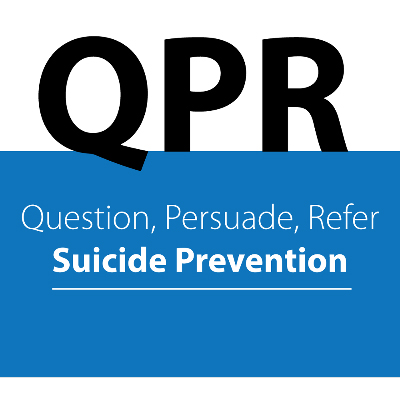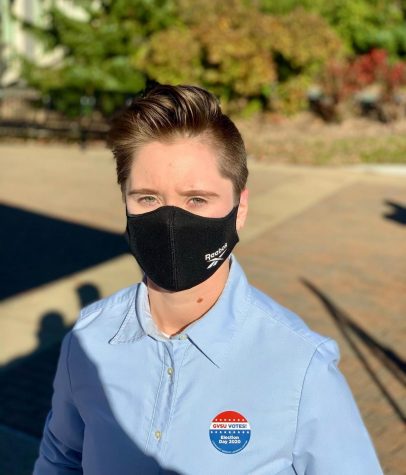GV highlights mental health awareness for Suicide Prevention Week

COURTESY \ GVSU
Sep 16, 2019
Last week was Suicide Prevention Week at Grand Valley State University, dedicated to highlighting the issue of mental health among college students, introducing them to available resources on campus and educating students about how to help others who may be struggling.
On Monday, Sept. 9, GVSU hosted the first of its QPR training session for students this year, allowing them to learn about the life-saving technique. QPR, which stands for question, persuade and refer, is an approach that engages individuals without a mental health background in suicide prevention. Techniques like this help involve students in mental health awareness and teach them to be alert to the signs of a depressed or suicidal person. The University Counseling Center staff train hundreds each year, placing GVSU among the leading institutions for students trained in suicide prevention.
Untreated depression is correlated to thoughts of suicide, so it is very important that topics like suicide intervention, managing depression and mental health promotion be discussed on college campuses. The director of the University Counseling Center Amber Roberts explained that it’s important for students to know what resources they have.
“Training a community of students, faculty and staff to intervene, provide support and link students to the University Counseling Center helps our campus widen the net of support,” Roberts said. “Depression is very treatable, so recognizing symptoms and knowing how to help someone seek assistance are vital. The majority of those who attempt suicide give some type of warning sign.”
Common signs of depression include feeling empty, helpless or hopeless, talking or joking about suicide or diminished interest or pleasure in activities. The University Counseling Center offers confidential individual and group therapy at no cost to currently attending GVSU students on both Allendale and Pew campuses. The Counseling Center also works outside of GVSU, providing free suicide prevention programming to local schools and organizations as a public service.
There are companies in Grand Rapids that are specifically focused on suicide prevention and mental health awareness. R3 Continuum, a specialty behavioral health company that provides custom behavioral health solutions for workplace well-being, provides “postvention” services to individuals impacted by a recent suicide. Sarah Hathaway, manager of R3 Continuum’s Clinical Consult Center and a graduate of GVSU’s MSW program, explained that R3’s goal is bolstering resilience and preventing a ripple effect.
“We are working to help reduce stigma related to mental health needs by bringing mental health services into the workplace at all levels of the organization,” Hathaway said. “We collaborate with employers, employee assistance programs, insurance carriers and other systems to provide a bridge to support for individuals impacted by a crisis, including suicidal ideation and other mental health crises.”
Companies like R3 Continuum are among the leaders of suicide awareness, helping to connect people with mental health options and making a difference. GVSU has adopted many of the latest techniques including QPR training, and will continue to push to aid all students struggling with depression or any mental health related illness. Assistant Director for Prevention and Community Education Melissa Selby-Theut expressed that the center and its staff will continue to work with students and push to find new ways to prevent suicide among college youth.
“I would ultimately love to see every member of the faculty, staff and student body trained in the future. I would encourage anyone who isn’t trained yet to get trained by either attending one of our scheduled QPRs or contacting the University Counseling Center to schedule one. We will come to your class, your meeting or your living center to equip you and others with the information you need to save a life,” Selby-Theut said. “There is hope. Sometimes it may not feel like it, but it’s there, and reaching out for help is often the first step toward finding it. We are free, confidential and here to help.”
If you or someone you know is in crisis, please contact the National Suicide Prevention Hotline at 1-800-273-8255 or the University Counseling Center at 616-331-3266.


























